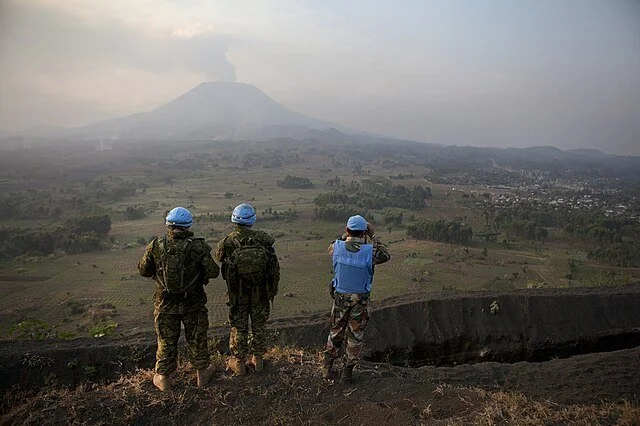Rwanda’s Support for M23 Rebels Threatens $1bn in Global Aid, Foreign Secretary Warns
Photo Courtesy: Wikimedia Commons
Foreign Secretary David Lammy last week warned Rwanda and its president, Paul Kagame, that foreign aid to the country could be cut off unless it stopped its backing of M23 rebels in the Democratic Republic of Congo (DRC). According to the FCDO, the UK has allocated £32mn ($39.8mn) in aid to the small East African nation this financial year as part of a global package that adds up to $1bn.
Soldiers for M23, short for the March 23 Movement, took the DRC city of Goma on Monday 27th January after overcoming Congolese troops. Kagame has denied any involvement with the activities of M23, however, UN experts have stated that the group’s forces include more than 4,000 Rwandan troops. Entanglements between Kagame’s Rwanda and the DRC are nothing new, however, there are now fears that this insurgency could lead to a wider conflict, with M23 proclaiming their intent to march on the capital, Kinshasa, located much further west. Before the insurgency, UN statistics showed 700,000 internally displaced people in Goma, many of whom fleeing other pockets of violence raging in the country.
Besides the reaction in Britain, other international actors have condemned M23’s actions and pledged increased aid to the DRC. Notable among the absentees in this regard is the United States, which has recently begun a 90-day suspension on all aid. Nonetheless, the new secretary of state, Marco Rubio, condemned the “Rwanda-backed M23” and “affirmed the United States’ respect for the sovereignty of the DRC” in a conversation with the country’s President Félix Tshisekedi. Closer to the zone of conflict, South Africa has warned Rwanda against further action that might harm any of its peacekeepers on the ground, and the East African Community, of which both the DRC and Rwanda are a part, has called for negotiations with the rebels.
The conflict has also called into question the use of the DRC’s minerals, which have been exploited for years by various rebel groups, including those backed by Rwanda, and eventually made their way into the manufacturing of products like mobile phones. Some of these are repackaged as Rwandan exports, which sanctions on the country could affect if the conflict continues.

